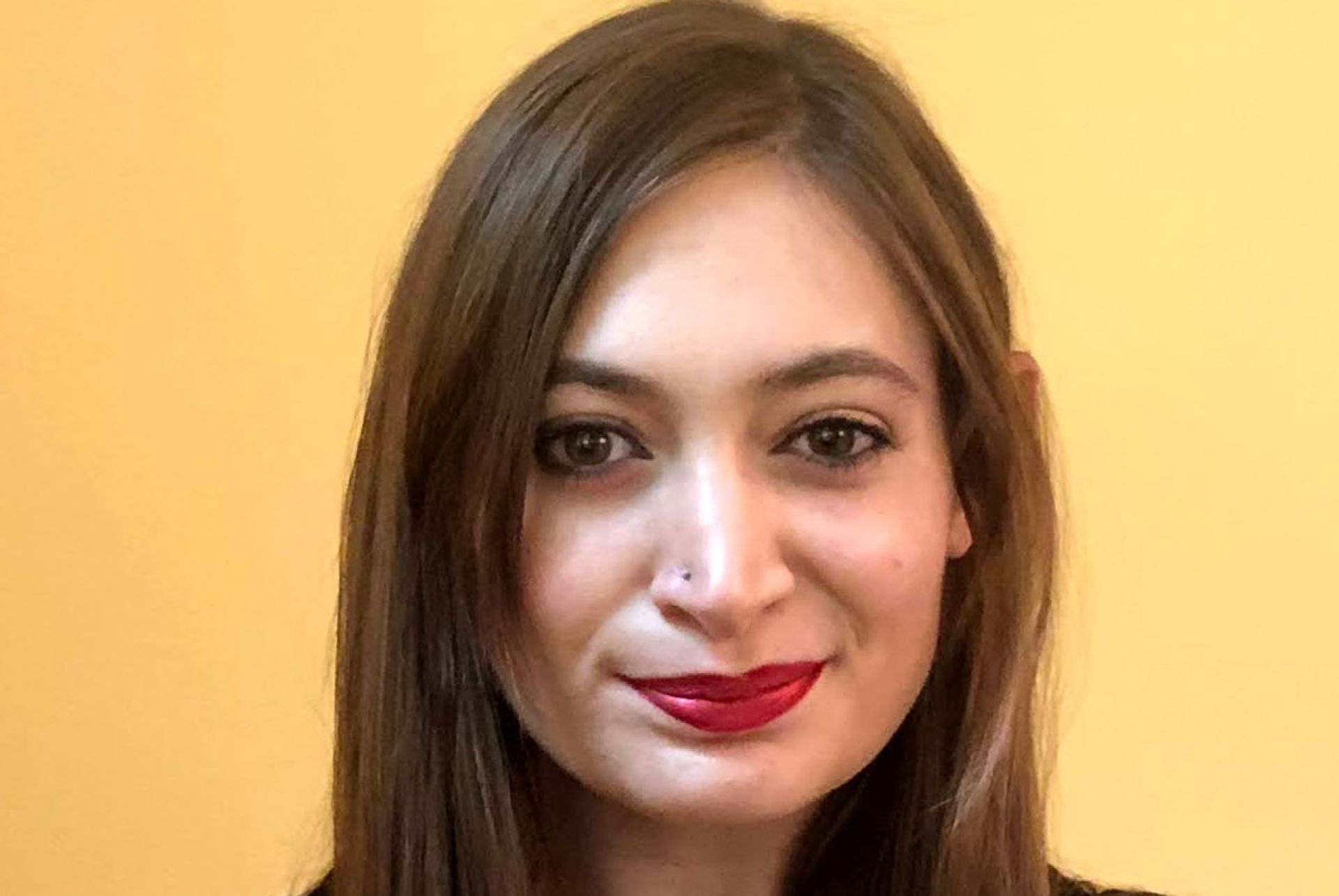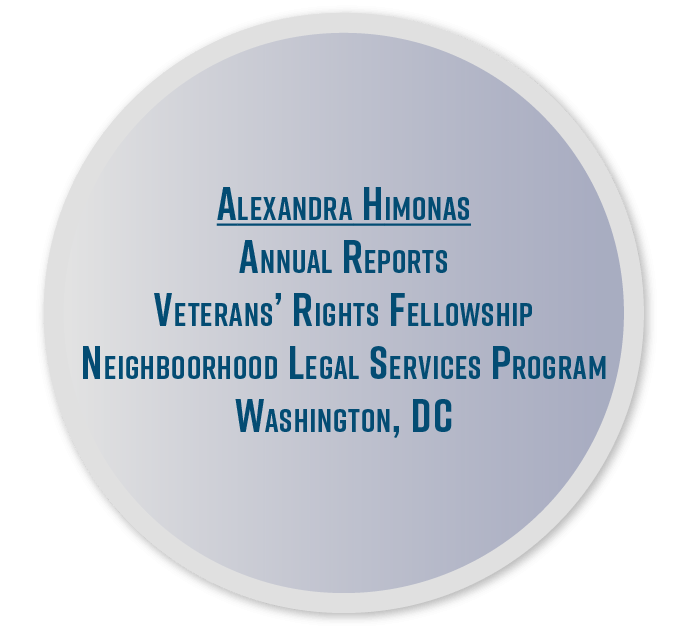Veterans' Rights Fellow
Veterans' Rights Fellow
Alexa Himonas
Georgetown University, J.D. 2022
Veterans' Rights Fellow
Neighborhood Legal Services Program
Alexa's Monthly Reports

I am deeply grateful to Equal Justice America for sponsoring the Veterans’ Rights Fellowship at Neighborhood Legal Services Program. It is an honor to have the opportunity to work with and for the veteran community in Washington, DC...Many veterans have been promised a great deal for their contributions and sacrifices—only to be systematically let down and marginalized. I am excited to advocate for veterans on a daily basis and to fight for systemic change.
EJA Awards Two-Year $130,000 Veterans' Rights Fellowship to Alexis Himonas at the Neighborhood Legal Services Program
September 01, 2023
I am deeply grateful to Equal Justice America for sponsoring the Veterans’ Rights Fellowship at Neighborhood Legal Services Program. It is an honor to have the opportunity to work with and for the veteran community in Washington, DC.
Working as a Veterans’ Rights Fellow will be a continuation of the work I learned to love in law school. My clinic experience at “Rising for Justice” (a tenant advocacy clinic for DC law students) ignited my enthusiasm for litigation and counseling. From connecting with people on short intake calls to representing clients in court, I developed a passion for working with and for the DC community. I continued pursuing this passion by participating in Georgetown’s Street Law program, where I co-taught a high-school class that prepared students for a mock-trial competition. These programs further cemented my love of working with different communities in DC, and I am excited to put the communication skills, advocacy tools, and legal knowledge I gained through these programs to use as a Veterans’ Rights Fellow.
Before and during my clinical experiences in law school, I focused on classes that examined power structures and systemic injustice. Some of these included: Borders and Banishment, Law and Social Change, Racialization and American Law, Law and Culture of Migration, and Africana Legal Studies. These courses inspired me to work on changing systems that force people to seek legal help, ideally improving clients’ abilities to represent themselves or possibly obviating the need for legal representation.
My undergraduate work and pre-law school graduate work focused on similar themes of power, systemic marginalization, and discrimination, but with a focus on feminist religious groups such as Mormon feminists and Roman Catholic Women Priests. These groups are often marginalized both by non-religious feminists and by their own religious communities, which highlighted for me the complexity of navigating identity and advocacy strategies for people existing in liminal spaces of their communities.
Both my legal course work and non-legal course work throughout my education focused on historical injustices and taught me the importance of working to create systemic change as a community member and advocate who uses the tools of law to serve community needs, rather than as a lawyer who occasionally steps into the community advocacy space. Because of this, I am particularly excited to be working at Neighborhood Legal Services Program, an organization committed to community engagement.
Many veterans have been promised a great deal for their contributions and sacrifices—only to be systematically let down and marginalized. I am hopeful that the skills I have learned in my academic career, as well as the legal skills I developed in my clerkship at the Utah Supreme Court this past year, will help me both advocate for veterans on a daily basis and learn about and fight for systemic change.


